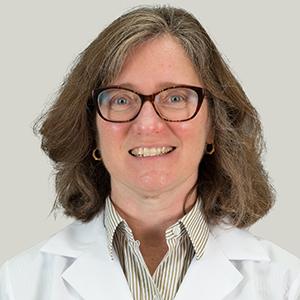CHEK2 as a predisposition gene for clonal hematopoiesis and hematopoietic malignancies

Lucy Godley
MD PhDNorthwestern University
Project Term: October 1, 2022 - September 30, 2025
This proposal explores how inherited mutations in the DNA repair gene CHEK2 lead to blood cancers. Our work employs two unique resources: patient-derived cell lines and mice engineered with an inherited Chek2 variant that accurately models how bone marrow stem cells acquire DNA changes over time leading to bone marrow cancers. Our results may lead to new approaches that slow or prevent blood cancers in people with high risk.
Two key areas of great interest currently in hematology are how inherited and acquired DNA changes lead to bone marrow-derived cancers. In the past, each of these was considered rare, but we now appreciate them to be common. The work proposed here is based on the observation from the Godley Laboratory, which has one of the world’s largest collections of individuals and families with inherited bone marrow cancers, that inherited mutations in the DNA repair gene CHEK2 are common causes of inherited risk. We believe that such individuals are predisposed to developing bone marrow stem cells with DNA changes that are not repaired properly, which leads to persistence of these mutated clones which serve as a direct precursor to bone marrow-associated cancers. The proposed experiments will test this idea using resources unique to the Godley Laboratory: patient-derived cell lines with defects in CHEK2; and a new mouse model that expresses the Chek2 variant most commonly seen in patients with inherited risk that faithfully mimics the acquisition of DNA mutations within bone marrow stem cells and develops bone marrow cancers.
Our work will be focused on two Aims: Aim 1: Determine how inherited CHEK2 mutations lead to defects in DNA repair, cell division, and copying of the DNA. We hypothesize that inherited CHEK2 mutations lead to increased DNA damage within bone marrow stem cells that allows mutated cells to persist. Aim 2: Determine the relationship between expansion of mutated bone marrow stem cells and the development of bone marrow cancers. We hypothesize that inflammation and/or other DNA damaging stressors, such as chemotherapy and radiation, promote the expansion of mutated cells within the bone marrow stem cell pool, leading directly to cancers.
Impact: Importantly, our new mouse model accurately recapitulates our observations in human bone marrow, thus providing a system in which to test ideas that are directly relevant to human disease. Our planned work may identify one or more stressors that cause expansion of mutated bone marrow stem cells, which could lead to the development of clinical trials to test if these stressors confer a similar risk in people and/or whether blocking such stressors would slow or prevent expansion of these cells and development of bone marrow cancers in people. Moreover, our results may lead to recommendations for adapting treatment regimens and/or surveillance strategies to prevent expansion of these mutated cells and eradicating the threat of bone marrow tumors in at-risk people.